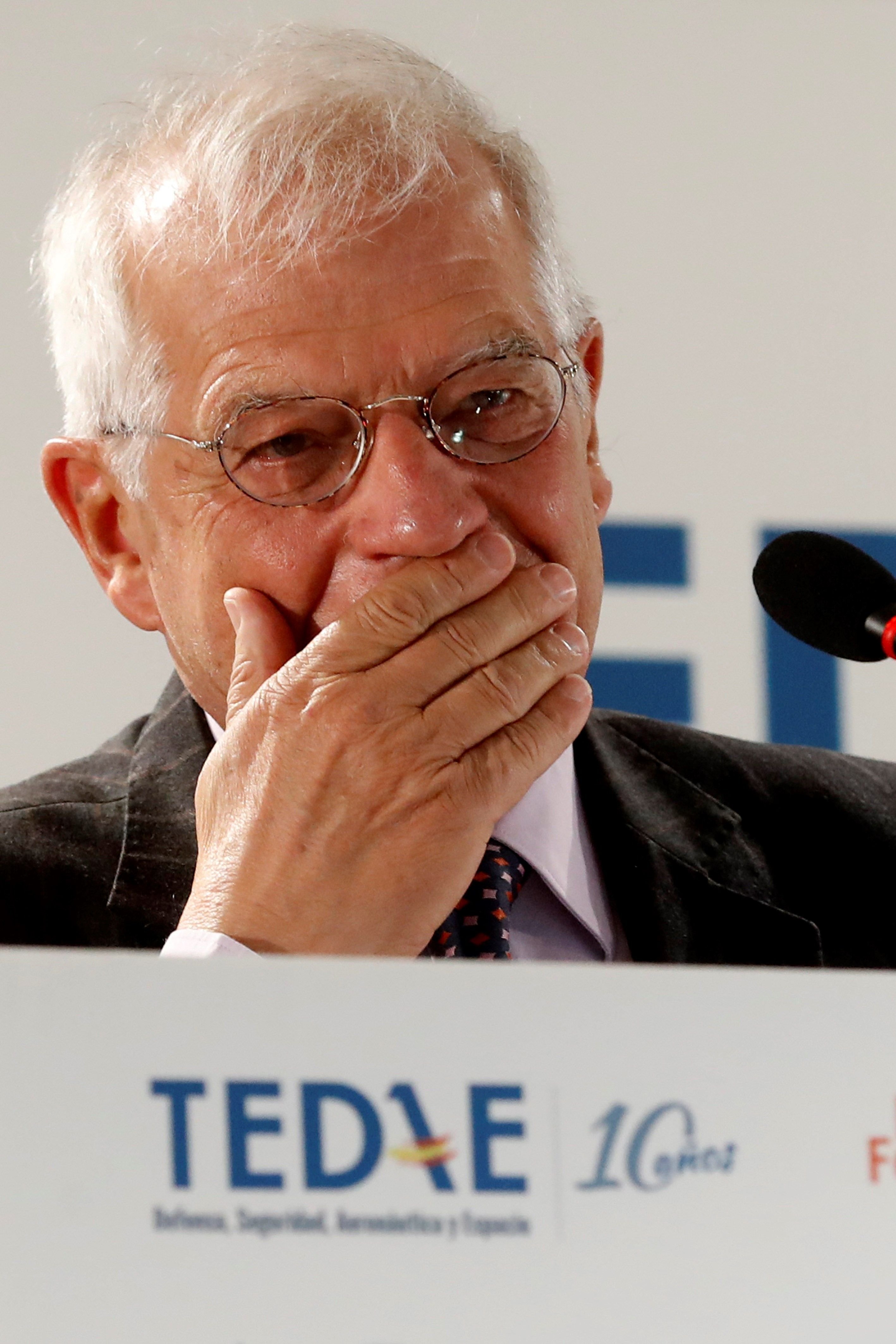The EU's High Representative on Foreign Policy, Josep Borrell, has been forced into damage control mode on social media after disparaging comments he made about Greta Thunberg and young climate campaigners provoked a storm of criticism around Europe. The former Spanish foreign minister was even strongly criticised by his Spanish Socialist colleagues, while the European Commission, of which Borrell is a member, distanced itself from his remarks.
The comments of the High Representative of the EU @JosepBorrellF on the youth movements for climate are unacceptable for a representative of the EU. We'll be asking for a full explanation from him next week.#fridaysforfuture #climatestrike #climatecrisispic.twitter.com/k9wLAMIkm0
— Greens/EFA in the EU Parliament 🌍 (@GreensEFA) 7 de febrer de 2020
The controversy began on Thursday, when the head of European diplomacy referred sarcastically to what he called the "Greta syndrome", alluding to young Swedish activist Greta Thunberg, and the movement she leads, Fridays for Future. He expressed his doubts about the movement, saying "It's very easy to demonstrate against climate change if no-one asks you to pay for it".
Criticisms of Borrell's remarks flowed free and fast on social media, and this Friday, Spain's ecological transition minister, Teresa Ribera, took to Twitter herself to publicly express her disagreement with her former ministerial colleague's postulates. Said Ribera: "Young people are increasingly aware of the extremely high cost of not taking action on climate change; I am extremely grateful that they are protesting; and it's up to us all to do more, better, and faster to face the climate emergency."
Los jóvenes son crecientemente conscientes del elevadísimo coste que tiene no actuar contra el #CambioClimático; agradezco y respeto profundamente que se manifiesten; y a todos nos toca hacer más, mejor y más rápido para afrontar la #emergenciaclimatica. https://t.co/6RGRe4OpyH
— Teresa Ribera /🌹 (@Teresaribera) February 7, 2020
In the face of the criticism, Borrell sent two tweets in English, declaring his support for "youth movements to fight climate change" and saying that they are "inspirational for politicians and societies". Climate change was, he said, "one of the biggest geopolitical challenges we have". In his second tweet, he mentioned the needs for the "social and economic costs of transition" to be faced.
Youth movements to fight #ClimateChange have my full support and inspire politicians & societies. Climate change is one of biggest geopolitical challenges, we can't afford costs of inaction. (1)
— Josep Borrell Fontelles (@JosepBorrellF) 7 de febrer de 2020
To be successful, we also need to tackle social and economic costs of the transition with Just Transition Mechanism. (2) #EUGreenDealhttps://t.co/bzOc14eV17
— Josep Borrell Fontelles (@JosepBorrellF) 7 de febrer de 2020
However, some found the EU foreign policy head's response to be inadequate or insincere. Catalan economist Xavier Sala-i-Martín even accused the EU foreign policy head of "lying for damage control".
Lying for damage control. This is what happens when you appoint a clown to an important position: it acts like a clown! And, don't worry, he will continue to do so. https://t.co/UN9CpmF55F
— Xavier Sala-i-Martin (@XSalaimartin) February 7, 2020
Meanwhile, the issue was also raised by reporters at a European Commission press conference, where a spokesperson responded that the Commission's position in support of such youth movements was clear. He was then asked: "Do you think there is such a thing as the Greta syndrome?"
I la @EU_Commission es desmarca de les declaracions de Borrell, dóna suport als joves i nega que existeixi el “síndrome Greta” al qual va referir-se l’Alt Representant de la UE. pic.twitter.com/VuU9883jll
— Xavi Coral (@xavicoral) February 7, 2020
"I don't think the Greta syndrome has been defined as a medical condition so the answer to that is no", was how the Commission spokesperson dismissed the question.

